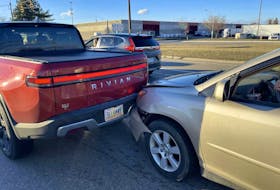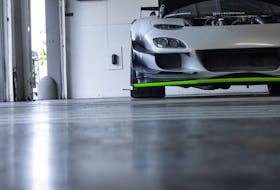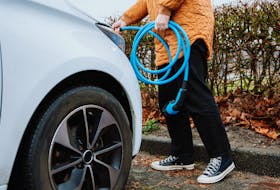By Stephanie Wallcraft
Pressure was already mounting before we started isolating in our homes due to COVID-19. But now that we’ve been in the midst of this pandemic for weeks, the question is more relevant than ever: shouldn’t we be able to buy a car online by now?
The answer is that you can buy a new car today without ever leaving your house, as long as you’re not particular about the brand.
Genesis is currently the only company selling cars in Canada that allows you to complete the entire process without ever stepping foot into a showroom or finance office.
But going this route means you’re buying a sedan, since that’s all that Genesis offers — at least, until the GV80 SUV arrives later this year.
If it’s a used car you’re after, there’s a new player in the game called Clutch, a Canadian start-up that originated in Halifax and just started doing business in Toronto. Its sales process takes place entirely online and at customer homes, though the legality of its business model is being contested in Ontario.
To buy anything else, or if you live in certain parts of the country, you’ll inevitably end up at a dealership at some point in the purchase process. But as with the rest of the industry, things are changing rapidly.
Step 1: Finding the car you want
Between souped-up dealer websites and classified-style online marketplaces, there’s no lack of places to search for cars online. Some especially creative dealerships have even taken to posting new arrivals on social media or starting up YouTube channels.
Traditionally, if you had specific questions or wanted to take a closer look once a car grabbed your interest, that’s the point at which you’d be heading into the dealership.
Just before the pandemic isolation measures hit, some dealerships were starting to experiment with offering live video walkthroughs, where a salesperson would hold a video chat with you via smartphone and show you some of the finer details up close or answer any questions you might have. Under COVID-19, this practice has become much more widespread, and that means it’s likely to stick even after dealerships fully reopen.
Cadillac Live is also worthy of a call-out here, since it already provides this type of online browse-and-ask service for the entire Cadillac brand.
Step 2: Test driving
Until recently, this part of the process hadn’t changed much in decades. If you’re considering buying a car, you’re going to have to show up to a dealership to test drive it, right?
Not so fast. Genesis launched in Canada three-and-a-half years ago and started taking cars to clients’ homes and offices for test drives, turning this assumption on its head. Clutch followed and had just started performing at-home test drives in the Toronto area early this year.
And then the coronavirus made the traditional way of doing things impossible overnight.
For now, what we know is many provinces permit dealers to transport vehicles to customers’ homes for test drives, but those that do allow it require that the purpose of the visit be only for a test drive — i.e., a salesperson shouldn’t be showing up with contracts and pressuring you to sign. It’s also in the customer’s best interest to have a test drive agreement prepared and signed in advance that makes it clear, for example, how long you’re allowed to keep the vehicle and what happens if there’s an accident or theft.
Quebec is an exception to this by requiring test drives to take place at a dealership as part of the sales process.
Step 3: Signing the documents
There are two primary categories of paperwork that need to be signed when you agree to buy a car: the agreement to purchase, and – unless you’re paying in cash – the agreement for leasing or financing.
The purchase agreement is relatively straightforward, but whether you can sign that agreement online using a system such as DocuSign depends on where you live. E-signatures are legally binding and valid in a vehicle purchase in many provinces, but some don’t permit them.
Ontario, British Columbia, and Saskatchewan allow the practice, for example, while Quebec and Prince Edward Island do not.
Financial instruments are even more tricky. Banks have strict identification requirements to follow to avert fraud and money laundering concerns, part of which involves a “wet signature,” industry terminology for having your identity verified and then putting physical pen to paper.
Most automakers don’t have processes in place for meeting these requirements digitally, although several are actively and urgently working on it now that physical distancing appears to be in the cards for the long term. Clutch gets around it by having you sign all of your paperwork at your home, which is another process that’s allowed in some, but not all, Canadian jurisdictions.
The sole exception is Genesis. Customers can download their contracts through their accounts on the Genesis at Home portal, print them out and sign them, then scan and upload the executed contracts back into the portal to submit them.
As of this writing, Genesis believes itself to be the only automaker in Canada that’s equipped to complete this portion of the process entirely online.









